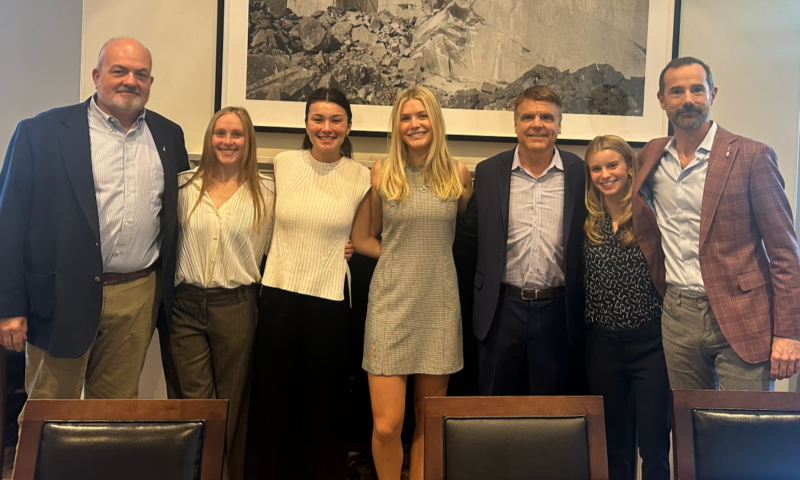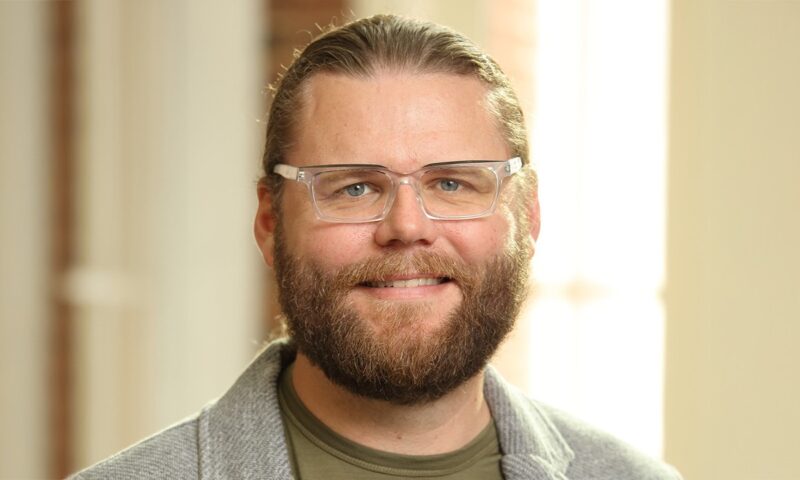Sustainable development and community building are Ryan Brinza’s passions. His dream? Getting to a position where he can create a mixed-use project that transforms the area where it is established for all involved.
“Growing up, I was able to watch the construction of a large mixed-use development and its eventual opening,” he says. “It had an immediate impact on the community and provided a shared space for the whole community to gather.”
As an Urban & Environmental Planning major at the School of Architecture, Brinza hopes to one day use what he learns in his education to found his own real estate development firm. He’s been fascinated by the positive results that decisions made by the industry can have on communities and the built environment, as well as how the real estate market constantly evolves to present new trends, technologies, and investment strategies.
“It feels like there is always something new and exciting happening in the real estate industry,” says Brinza.
That strong interest is also partly responsible for driving him to apply to the Real Estate Minor at McIntire. As Vice President of Programming for the Virginia Undergraduate Real Estate Club student organization, Brinza has experience learning with others who are drawn to the subject; he was further motivated to join a community of those who share his desire to study it through access to coursework designed to develop knowledge of real estate finance.
Developing an Essential Education
“As an Urban Planning major in the School of Architecture, I really wanted to expand my education in other departments,” he says. “I am extremely thankful I did,” he says, noting that he wanted to learn from the late Professor Drew Sanderford and legendary McIntire Professor George Overstreet at the McIntire School.
“I’ve had the opportunity to take a class taught by them, and it was extremely helpful. They took time to meet with me individually to discuss career goals and unique areas to study,” he says.
It’s clear that what he learned in the minor with the two Commerce professors applies, in many instances, directly to his Urban Planning major and his understanding of it.
“Much of the coursework explores sustainability, urban resilience, and how to design or advocate for a city that works for everyone. A lot of what we study about how to create a great city is heavily dependent on real estate development. By studying both Real Estate and Urban Planning, I am able to understand how related and dependent the two areas of study are,” Brinza says, explaining that urban planning provides critical data and guidelines that shape development decisions, while the finance area of it analyzes the economic feasibility of projects while incorporating urban planning principles to ensure sustainable and profitable outcomes.
Likewise, Brinza found that courses such as Foundations of Real Estate Finance and Real Estate Investment Analysis taught him key financial concepts that helped him to cultivate a broad overview of finance that was central to examining more complex topics and that greatly strengthened his understanding of those areas. Other courses provided more specific skills. “In COMM 4700, students look at individual sites and create an investment memo. It taught me how to look at micro and macro trends in real estate decision-making,” he says.
Importantly, the minor was also what he credits with enabling him to get an internship in the real estate finance industry and be an immediate contributor at Deutsche Bank in New York City last summer. “I have applied these skills to the office, and thanks to COMM 4700, I came in prepared and with a grasp on what key things to look for in real estate investing.”
Basis for a Career Blueprint
Ultimately, Brinza asserts that the minor provided the best avenue for understanding the financial aspects of real estate; he describes the curriculum as nothing less than “pivotal” in helping him to discover what he wants to pursue after he graduates in the spring.
He doesn’t hold back when discussing the influence of the experience.
“The Real Estate Minor exposed me to a whole new field of study, as well as new career paths. Without the minor, I would not have felt capable of working in a career in real estate finance or even aware of all the unique possibilities within the industry,” Brinza says, reiterating the immediate use he had incorporating what he’s learned at his internships, taking a hands-on role at the firms because of his strong base of understanding.
“The concepts and education I learned from coursework in the Real Estate Minor have changed my whole career trajectory,” he insists.



